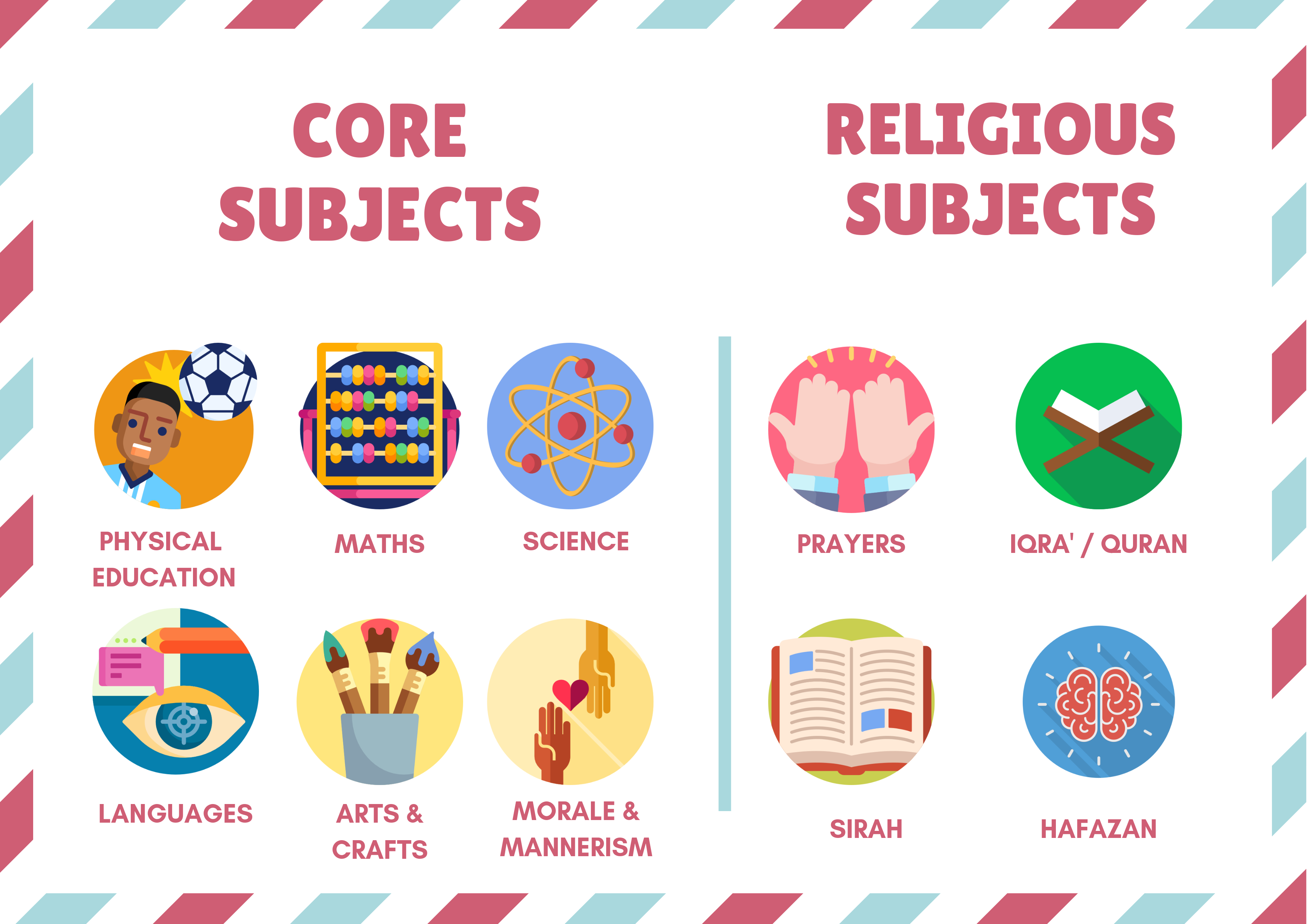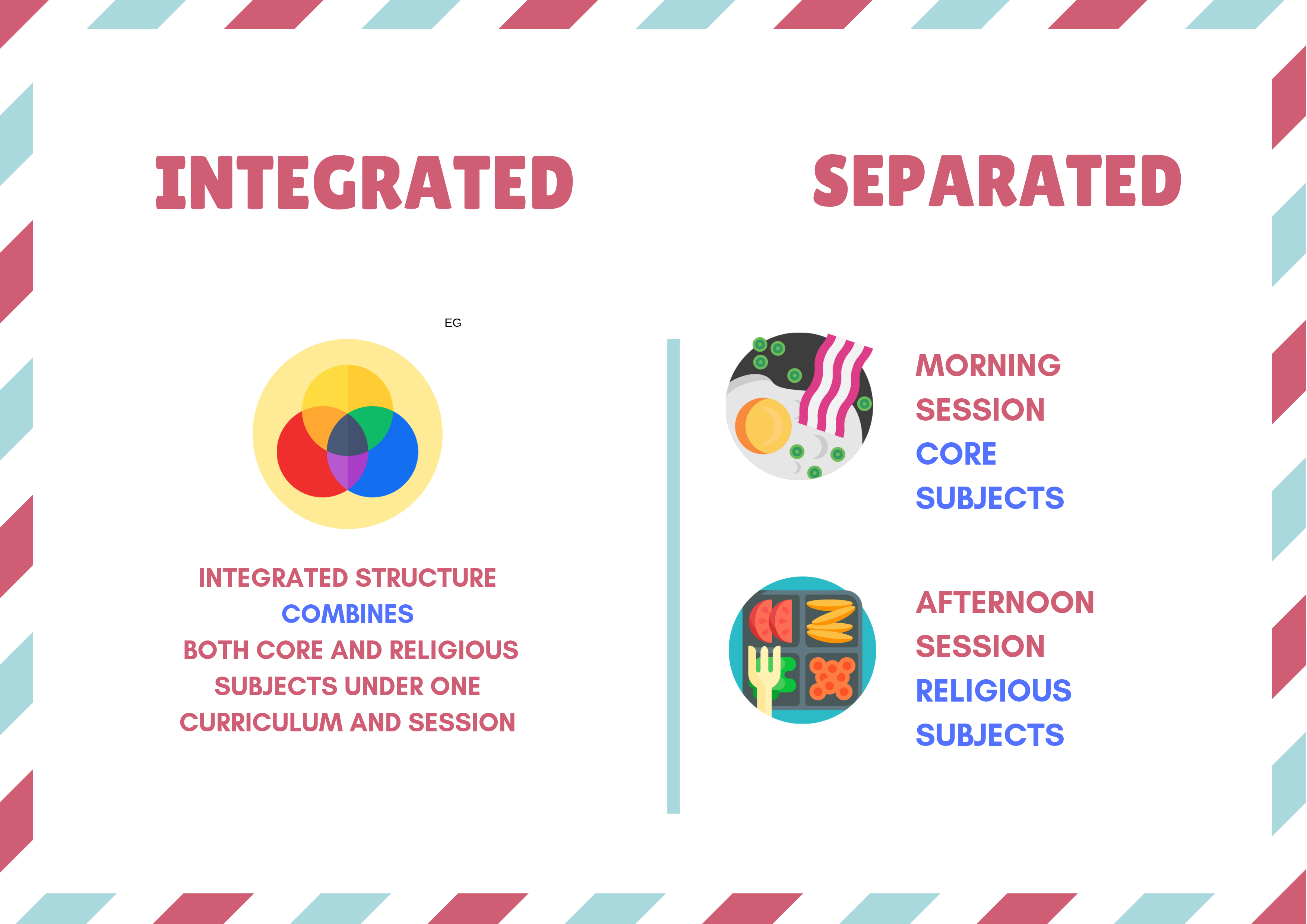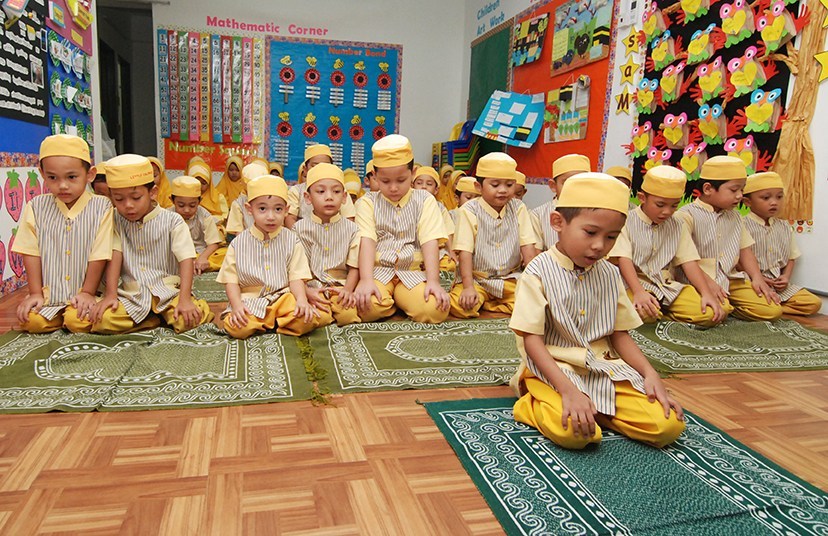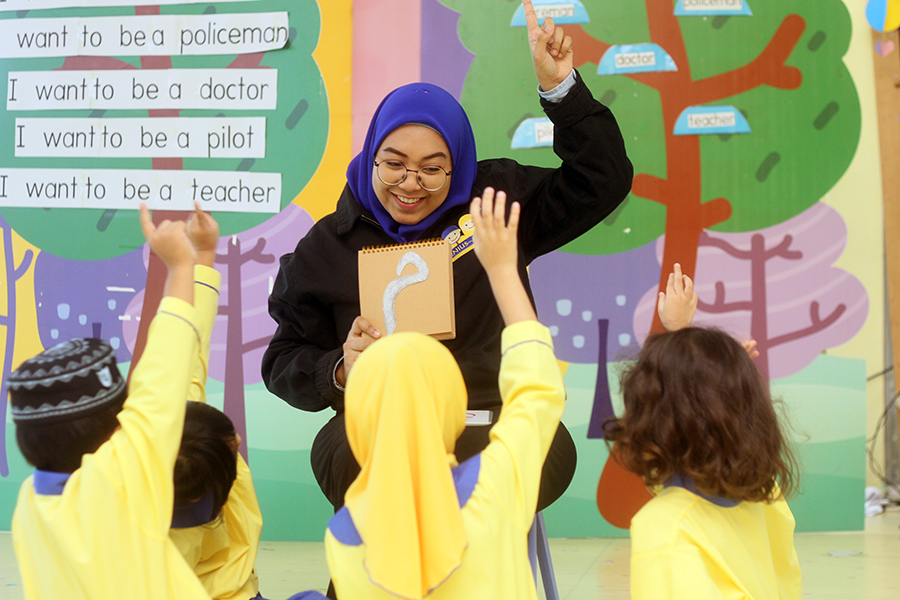Being in a country where the majority of its citizens are Muslims, it’s not really a surprise that more modern parents are opting to send their children to private Islamic pre-schools. In fact, in a study conducted by Dahari and Ya (2011), found that 95.1% of its Malay Muslim participants preferred sending their children to an Islamic pre-school. This is mainly because it is believed that a good religious foundation aids students to adopt good moral values.
Perhaps the most common worry for parents is that these Islamic preschools are highly focused on Islamic education, that the academic part is not given as much attention. Nevertheless, this is certainly not the case. Essentially, Islamic pre-schools are similar to other preschools out there, with some even incorporating approaches like Montessori, and Waldorf into their curriculum – providing a spiritual, cognitive and physical balance to a child’s learning.
The only addition to this is the Islamic subjects. Among the common Islamic subjects are sirah (i.e. historical tales of Prophets, usually in form or storytelling), ibadah (i.e. prayers), akhlak (i.e.mannerism), Quranic or Iqra’ studies dan hafazan (i.e. verses memorisation).

Syllabus and Timetable Structure
There are generally two ways in which the syllabus can be structured. While some schools integrate their Islamic classes with the core subjects, some others prefer separating the two, normally having the core classes in the morning and all the religious classes in the evening.

Regardless of the structure, Islamic preschool serves as a great option for parents who are looking for a one-stop centre for their children. For parents who are sending their children to a non-Islamic preschool, but also want their little one to be exposed to the foundation of the religion, often, they will need to send their children to a separate religious class or hire a private ustaz or ustazah to their homes in the evening. But since children are already learning this at their Islamic preschool, it saves parents’ time and energy as they do not need to pick up their child in the afternoon then send them to another class afterwards. Sometimes, it is actually much cheaper to send your children to an Islamic preschool rather than sending them to two separate classes.
Languages
Medium of instructions in Islamic preschool differs from one to another depending on the demographic and the geographical area that it is located at. Some preschools are taught in Malay, while some others are in English.
However, more private Islamic preschools are adopting English as their main language. Hence, you should not be concerned about your child being left behind in learning the world’s lingua franca. Some schools also teach the basis Arabic language to children.
Is it too Islamic?

Source: Little Caliph
Islam in its core promotes the concept of ‘Wasatiyyah’ or ‘moderation of every matter’. Hence, in answering the question of whether Islamic preschools are too Islamic or not, it is safe to say that Islamic preschools strive to provide a wholesome learning to its students, just like all the other preschools are. Apart from the additional religious subjects, there are not much difference after all.
In sum, an Islamic preschool can be said to be the best option for parents who want to ensure that their children are not just equipped with the academic skills that are crucial for their future life, but also the religious knowledge to make them a better Muslim.
If you are interested in knowing more about other preschool approaches offered in Malaysia, do click here.










Like!! Thank you for publishing this awesome article.